“They just risk everything – every song starts from a point of absolutely no safety net”: Queens of the Stone Age engineer and producer Robert Adam Stevenson on working with Josh Homme, Jeff Beck, Johnny Depp and recording a very '80s Taylor Hawkins
Interview: Since his own band broke up, Stevenson has taken the producer/engineer route, diving straight into the LA music scene and recording its biggest stars
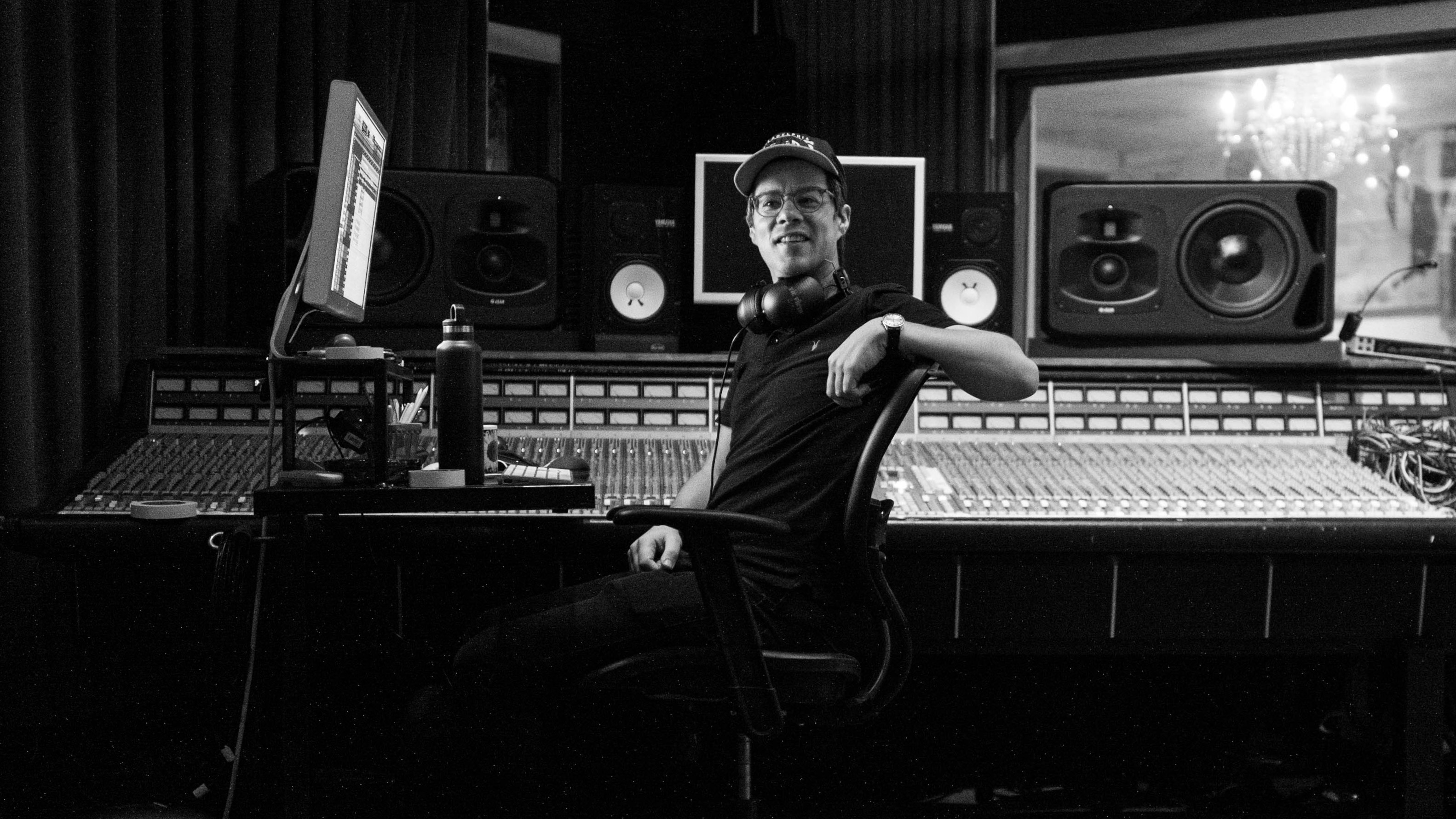
In 2017, Robert Adam Stevenson had a life-changing decision to make: stay in Oxford with his band, A Silent Film, or move to LA and follow his real passion: recording other bands. “I didn't like being a front person in the band,” he admits, “and I was so much happier being buried in the studio.” So bury himself he did, and during every recording session he drove his band's engineers and producers mad by asking endless questions, but he quickly became knowledgeable enough to record and mix the group. So when they split, Robert had something to fall back on, to become a studio producer/engineer himself.
I just risked it all, sold the band's backline on eBay which got me three months of Air BnB in LA!
“It turned out I loved helping other people get through that creative process,” he smiles. “I just wanted to make records all year round and now I can with different people!” And if you're going to fall back on something, you might as well do it in LA, right? At least that's what Robert thought, and in 2017 he decided to relocate there to practise his new craft.
“I just risked it all, sold the band's backline on eBay which got me three months of Air BnB in LA!” Robert almost winces at the decision he made back then, but seven years on it appears to have paid off. Through perseverance, taking every job he could (including “writing some terrible K-Pop”), some good luck, knowing his way around a studio, and being able to help artists unleash their creativity, Robert has worked with some of the biggest names, from co-producing Johnny Depp and Jeff Beck to engineering Queens Of The Stone Age – and being nominated for a 2023 GRAMMY in the process.
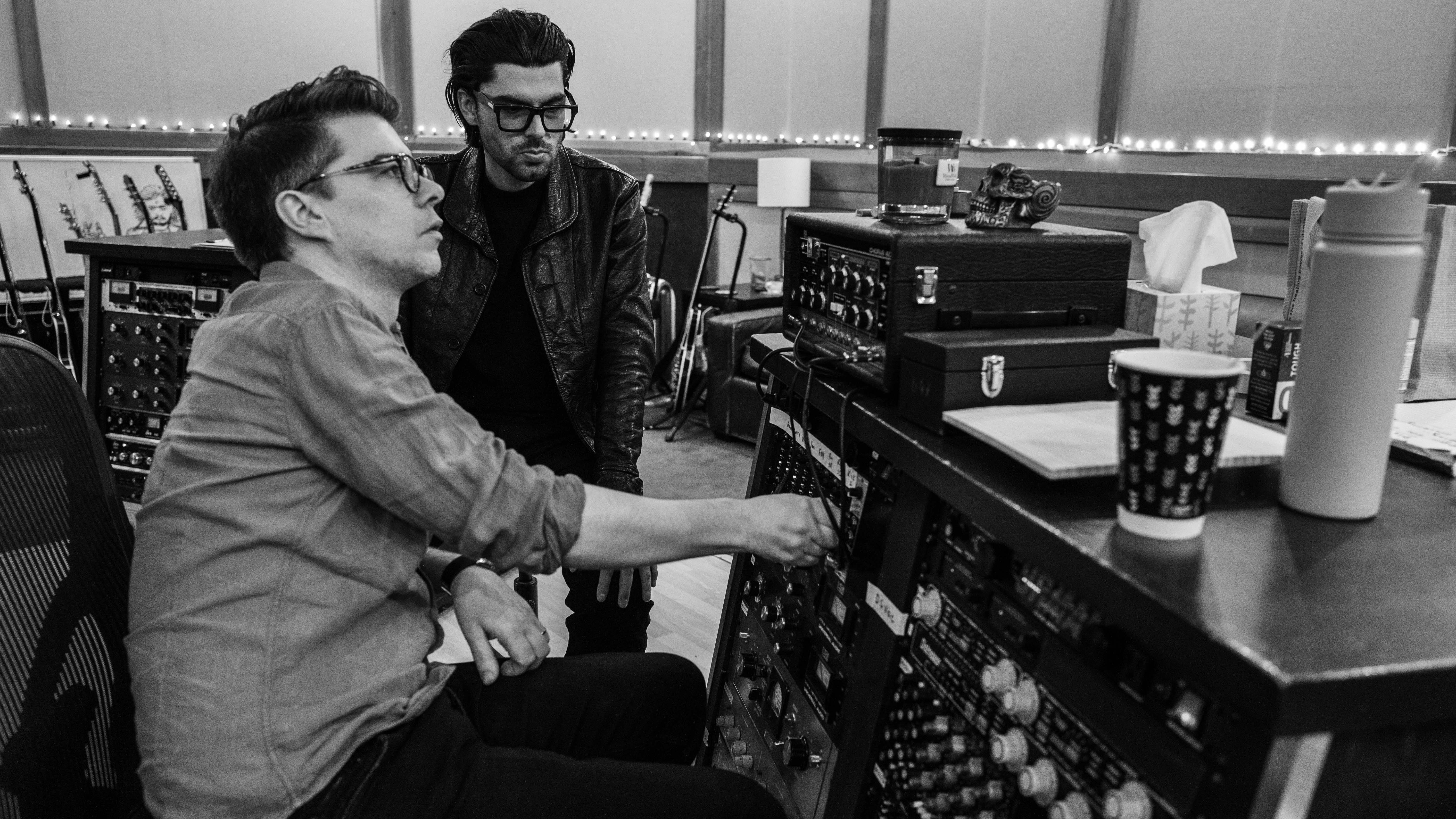
We caught up with him in his LA home studio to talk recording and mixing guitars, Johnny Depp's fanboy Jeff Beck excitement, recording the late great Taylor Hawkins, and even how Josh Homme got into a scrap with a band in Oxford. There's insider info on the notoriously secretive QOTSA recording process – ok, not much, but what did you expect from the Area 51-level security that surrounds Troy Van Leeuwen and Josh's guitar processing? But we do find out is how an engineer/producer gets the best from a band in the studio – and the best guitar recordings. And that it might not be so much about the gear in that studio, but more about getting on with – and the best from – the people within it.
“Oh yeah,” laughs Robert. “that's 90% of the job!”
The studio role
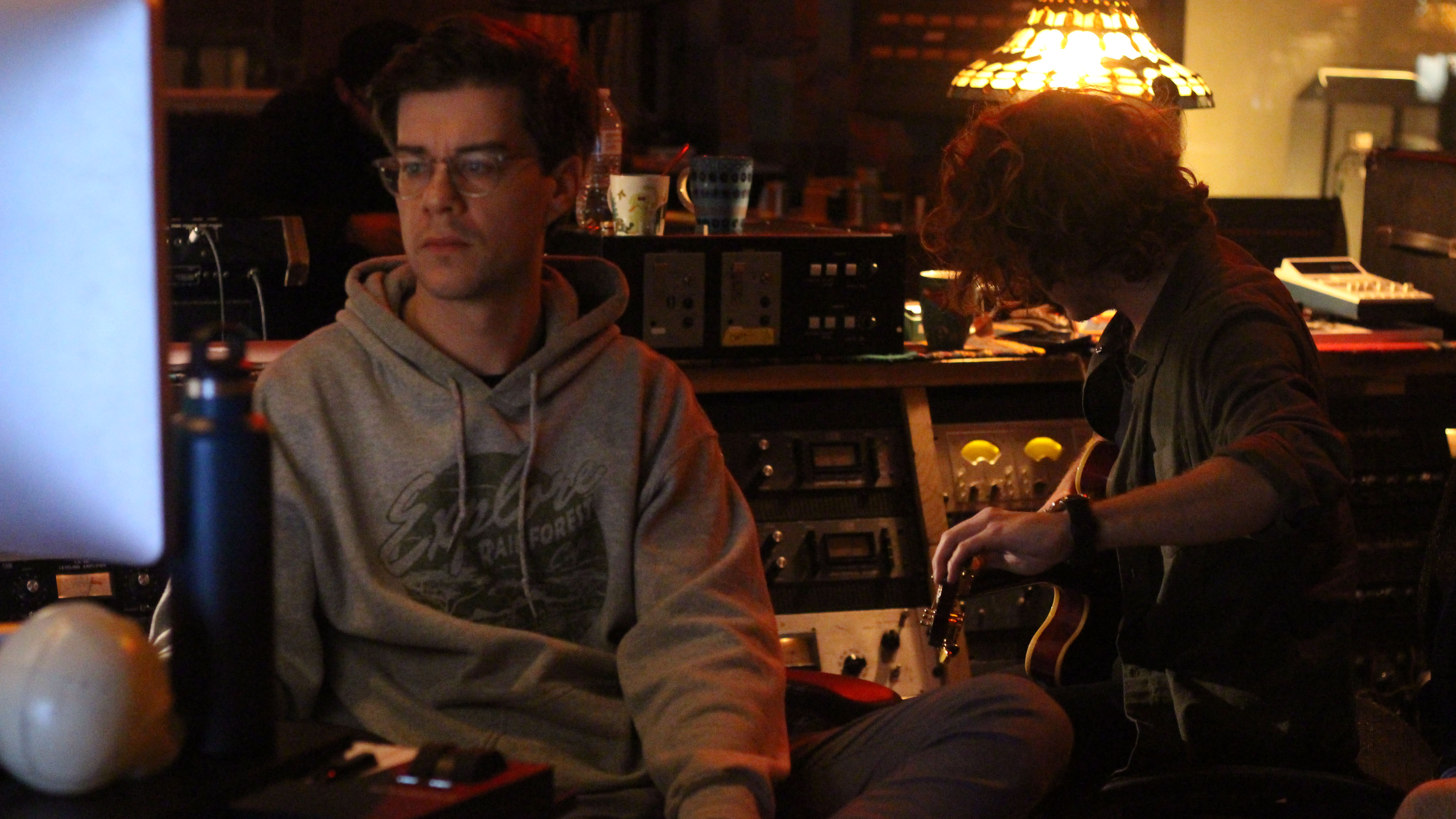
What is the difference between a producer and engineer? The definitions seem to be blurred…
RAS: "You're right. On a business level, an engineer will get a day rate, but with a producer you are in for the long haul, and get points on the record and a fee per song. So you have to be a bit creative on how you are booked. It's important to me to be a part of the creative process, so I'll push my luck. Sometimes you are not supposed to speak your mind but fortune favours the brave! Read the room, build the trust.”
Want all the hottest music and gear news, reviews, deals, features and more, direct to your inbox? Sign up here.
What is a typical day in the studio?
"It is completely different every day. I consider myself hands-on with the computer and positioning mics – actually being an engineer. But I also come at it from a musical and producer mindset. I'm listening intently to the main creative forces in the room, learning those personalities, and working out where they are hitting their walls. If you can realign someone's perspective, then they can be far more creative. They crave that as well, which is something I learned from being the front person in a band myself."
Jeff Beck could not stand talking about gear; he would just sit back and pretend to be immediately disinterested
So your own band experiences have been an advantage…
"It seems to have worked for me with some of the really big names that I have been lucky enough to be in the room with. Sometimes they are not looking for me to produce, they want me to engineer, but all my gears are moving. I'm thinking 'how can I help' and I'm trying to be ahead of the curve of their thought processes."
So you could be doing anything from miking up to sitting on a Pro Tools session and suggesting notes changes?
"Oh yeah. I'll push my luck!"
How much of the job is dealing with the personalities rather than gear?
"90%?! [laughs] The vibe and how people feel, and the type of people in the room are all super important. Also, trying to keep focussed on how inspired someone is, and never letting the gear get in the way. There are some people that love it, but there are others who can't stand it. Jeff Beck could not stand talking about gear; he would just sit back and pretend to be immediately disinterested. My job was to just have it all up and working so he could focus on the music."
LA connection
Ok, talking of Jeff, how did you get to work with such big names when you moved to LA?
"I happened to be working in a studio where Johnny Depp's nephew, Billy Rassel, came in – only in LA, right? He's an aspiring producer and came in to record an artist and I grabbed the reins and finished the project. He said, 'my uncle is really going to like it' and I was like, 'whatever, that's another world'.
“But Johnny loves making music and I got the call one night: 'Can you come over?' I ended up working through the night, listening to his stories, and helping them make some music. And it just turned out that – and how lucky am I? – that music happened to be him preparing ideas to give to Jeff Beck because they'd just struck up this friendship.
"I then did the Depp/Beck record [the album 18]. They were so kind to give me a co-production credit. Afterwards Jeff – and again this is mind-blowing – asked me to play keyboards on tour. I ended up doing the UK, rest of Europe and the US in 2022. It was crazy!"
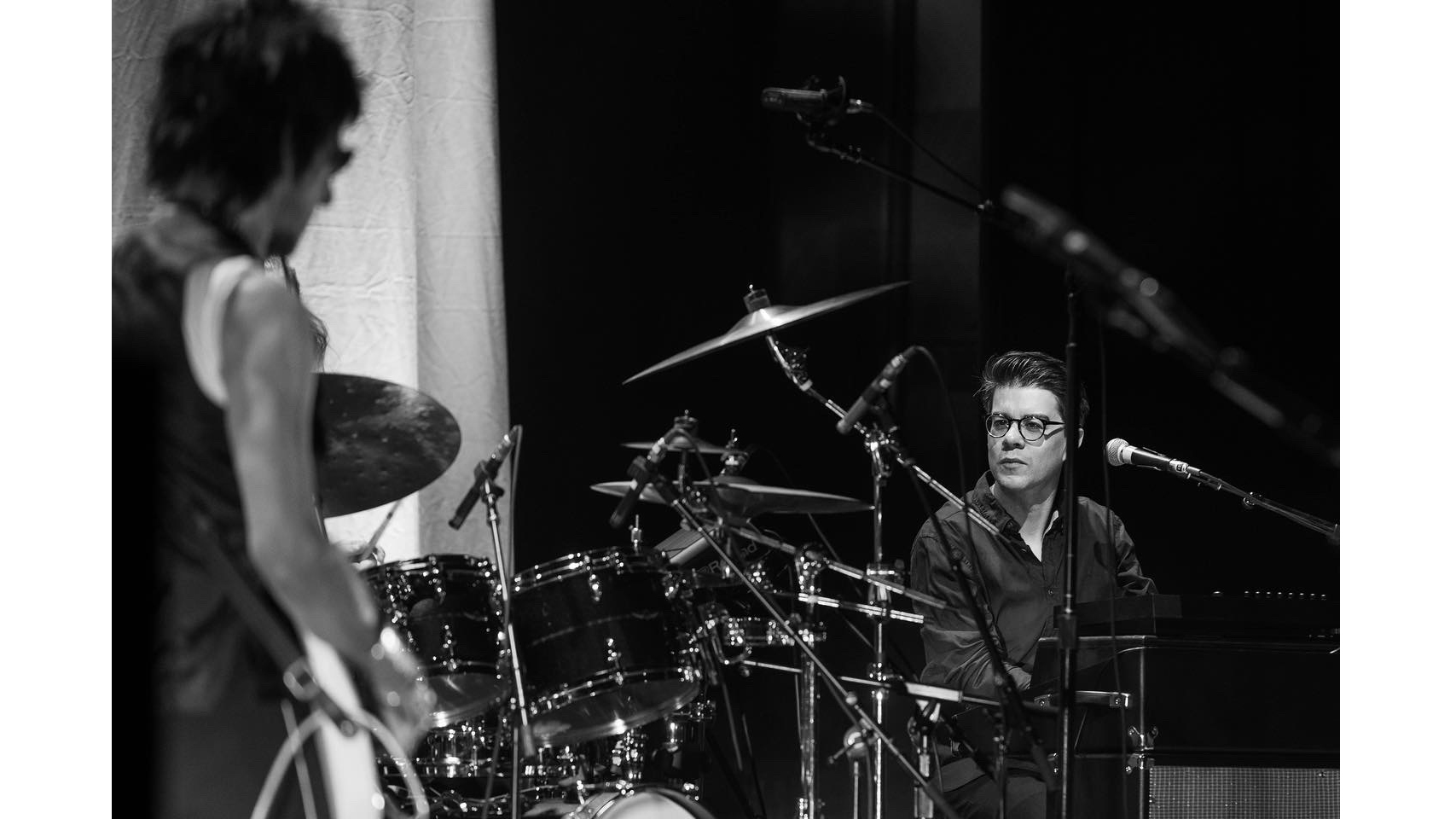
How did you meet Queens of the Stone Age?
"Through Johnny as he and Josh [Homme] are very good friends. Josh was literally over at the house hanging with Johnny. I'm a huge Queens fan. I remember seeing them play for their first record at Reading thinking, 'This is insane, this is the guy from Kyuss [Homme's former band] doing his new thing!'. I had all those stories that I could talk to Josh about. There was this great incident in Oxford when QOTSA came and had a fight with this Oxford band called Winnebago Deal in an Indian restaurant. It was legendary in the Oxford scene, that Josh Homme had come to town and had a fight with one of the cool bands. So I brought that up in front of Josh and Johnny, and his eyes lit up and he said, 'Oh my god, I remember, yes!'."
Who won the fight?
"Josh, obviously."
I had been making records trying to make them sound like tape on computers my whole life, and to just finally be let loose on a tape machine with a proper budget on a record like that was an incredible learning curve
How did it work in the studio with Josh, Troy and the band?
"I was coming in, being the engineer and getting that album done [In Times New Roman]. It was incredible to see how it unfolded: a lot of tape and everything on outboard. Basically the rule is never to use computer plugins. I had been making records trying to make them sound like tape on computers my whole life, and to just finally be let loose on a tape machine with a proper budget on a record like that was an incredible learning curve."
How did you find the process?
"Josh had said, 'we're going to do a lot of tracking on tape' and I was like, 'are you sure because I haven't actually recorded onto tape?'. But because he has this 'do everything in a roundabout different way' attitude, the idea of me struggling to use a tape machine actually appealed to him! It was still a Queens record that was going to break the rules and bend everything that you think is conventional. Things would eventually ended up on the computer, but again, with no plugins as it would come through an analogue console."
Did that unconventional approach extend to recording Josh's vocal?
"With many artists you shouldn't just have this 'use your most expensive microphone' [approach]. They [QOTSA] were quite fond of having a few microphones set up at a time, and of course ambient mics set up as well that are very important. I hadn't done as many multi-microphone setups before working on that particular record."
What can you reveal about the QOTSA guitar sound and how they get it?
"That it is a very specific world that Josh keeps secret!"
Ok, how involved did you get with him and Troy in terms of their guitar sound?
"They know [it] themselves inside out and don't need anybody to point them in any directions. And the language they speak to each other in is incredible. They have code words and descriptives for the sounds that they have used in the past that they know work.
"I was loving just hearing how they communicate about guitar tone. And that filled in so many blanks for [QOTSA] records that I love, so 'why does that record sounds so extraordinarily special?' And it's because of their processes and how they go about things in a roundabout way. It's very much 'find something that's not normal and now where can we make this work?' Combinations are key: light and shade is a massively important thing for them, and they just know the process. And Dean [Fertita, keys and guitars] is a very important part of that process too."
Is there anything that would surprise people about how QOTSA get their guitar sound? It's a vague question, I know…
"No that's fine and I'll give you a vague answer! [Laughs]. I mean, it's everything unconventional. Constant change, try this, try that. Sometimes the rule to get interesting guitar sounds is to go with small amp, single-miked and then loud in the mix, but then they'd do contrary to that in the studio too."
So basically, whatever they do and use in the studio, is unconventional…
"Yeah. I tell you what, I don't remember using an SM57!"
Guitar production
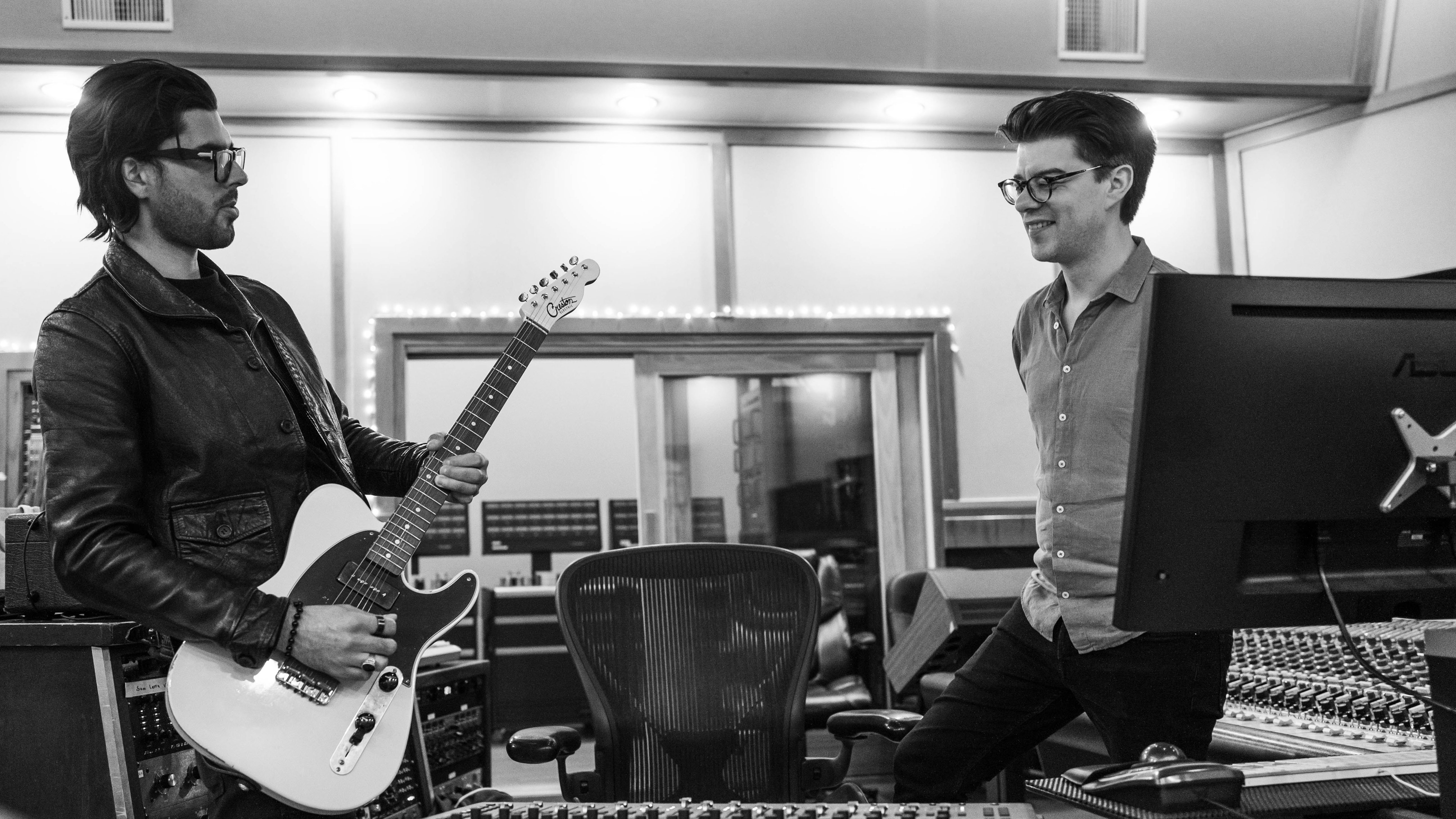
How does your work vary with other guitarists in shaping their tone?
"Out of all band members, guitarists know their stuff and have the pedals and amps they love. I'd never get in the way of someone's enthusiasm for that, but it's great to show other options and see if it inspires them. And they appreciate being shown new things they can add to their arsenal."
How do you adapt to different personalities and styles?
"I just did a lot of guitar tracking with The Kills and they are so cool, absolutely wonderful, and Jamie [Hince], again, he knows his guitars. It was a joy, and we had a great session where it was set up with a wall of his favourite amps. He had his favourite mics and I added some too. It was lovely just thinking about guitars and having lots of options to play with. It's nice to be able to shake it up and have a lot of colours."
I've become a fan of not miking too close to the grill
Do you have any tips for recording guitars?
"Yeah, the standard is a dynamic [mic] and a ribbon – we all love that combination and it becomes addictive. You can't quite imagine just recording with one or the other. I've become a fan of not miking too close to the grill. It used to be that you'd have the mic close to avoid bleed playing live. Once you're in the studio and not thinking about those things, it's lovely to pull the mic back six inches or a foot off the cabinet – it really changes the sound.
"A lot of times I'll have a DI line running because it's become a common thing in music – everyone assumes there's a DI and you get to the end of the process where you've just recorded the mics and someone will say 'hey can I re-amp that?' So we have to DI everything now, just in case."
Do you have favourite mics for recording amps? Is it the dreaded SM57?
"Oh yeah absolutely. The SM is not dreaded! I did pick up some older Unidyne versions and I swear they sound a little richer in the midrange and less sharp. For the ribbon a Royer is great, but other interesting choices are a Coles, especially on a 4x12 – it just works. And then a Beyerdynamic M160 – an amazing microphone."
How do you approach acoustic guitar recording?
"Acoustics are very hard to record – I'm always wishing I had more time. I will often use whatever the vocal mic is as a starting point. The low end is hard to deal with, and I've also started using big valve mics but in omnidirectional mode – that gets a more balanced recording, and then I can boost the low end. Recording an acoustic at the 12th fret with that setup is a good place to start – no rules though! And of course dual mics help; it's nice to have a ribbon set back to capture the room."
What about mixing the guitar?
"It's usually to double track or not, a process that a lot of guitarists say they have to do. But often you are just taking up double the real estate and adding nothing interesting. So use different guitars, switch up the tone, multi mics are useful, or switch up the mics and add tons of ambience. It is nice to have the space recorded in on the finished recordings as it's unique."
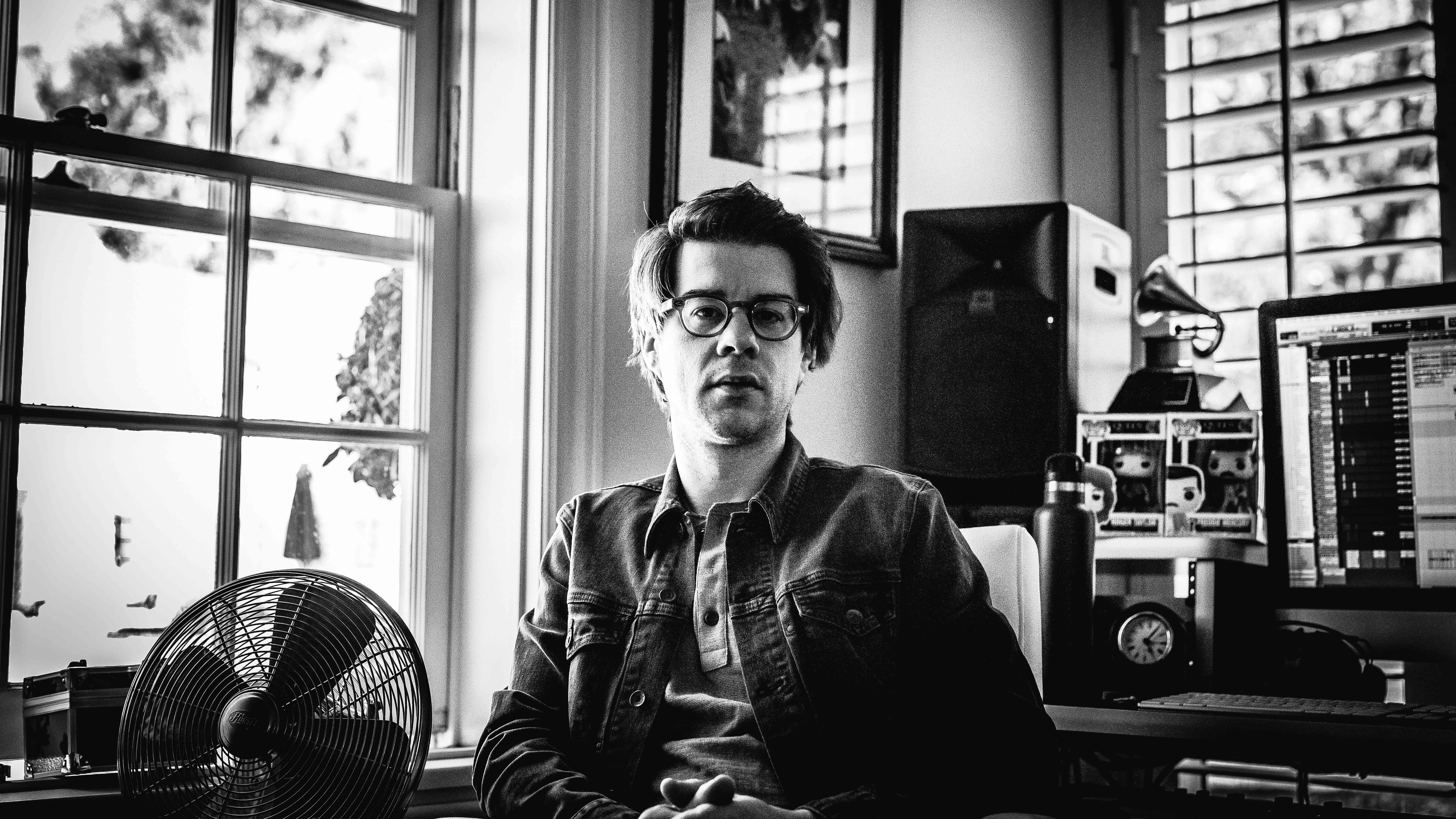
Neural DSP plugins have been really surprising with how good they are
Are bands (QOTSA aside) more open to using plugins in the studio these days?
"Yeah, sometimes I'll find that someone who has a great ear will have carved something out in a demo [using plugins], and that when you re-track it with a great guitar and a great vintage amp, they are not that impressed, and that's ok!"
What have you been impressed with on the digital emulation side of things?
"One company is Neural DSP. Those plugins have been really surprising with how good they are. Others I use are Plugin Alliance/Brainworx ones that matches well with UAD's, so I can swap between them. It's common to use a DI bass and add those Plugin Alliance bass sims on top in the studio. Sometimes it's better than the real thing, to be honest."
Taylor loved all his Genesis and '80s sounding stuff – more than appeared on the Foo Fighters albums – so to be able to do that for him in the studio and him get really excited was a wonderful memory
Overall, which have been your favourite studio moments during your time in LA?
“I was very lucky to be recording with Taylor Hawkins, around 2021 [for his band NHC with Dave Navarro and Chris Chaney] and just to see someone that brilliant recording drums, and seeing their reaction when they hear what you've recorded. Taylor loved all his Genesis and '80s sounding stuff – more than appeared on the Foo Fighters albums – so to be able to do that for him in the studio and him get really excited was a wonderful memory.
“The Jeff Beck album was just shockingly beautiful guitar playing. I'm keyed into these emotional experiences but watching Johnny [Depp] respond to Jeff's performances in the studio was amazing. Jeff would play things that he didn't necessarily think were special and Johnny would be laser-focused at the back of the room encouraging him and jumping out of the seat with excitement. To Jeff it might have been off the cuff but to Johnny it was just watching his hero, you know? A wonderful moment.
“And QOTSA. Oh my goodness, yeah. I just love that there was never a safety net. They just risk everything. Every song starts from a point of absolutely no safety net which I think is so crazy. Usually a band would come in with a demo and maybe you are playing to demo stems or maybe to a click track but [with QOTSA] it's none of that. It's just 'go at it and if it feels good, we're done'. The simplest things work sometimes but it's all about the people."
- Find out more about Robert's work at robertadamstevenson.com
Andy has been writing about music production and technology for 30 years having started out on Music Technology magazine back in 1992. He has edited the magazines Future Music, Keyboard Review, MusicTech and Computer Music, which he helped launch back in 1998. He owns way too many synthesizers.



